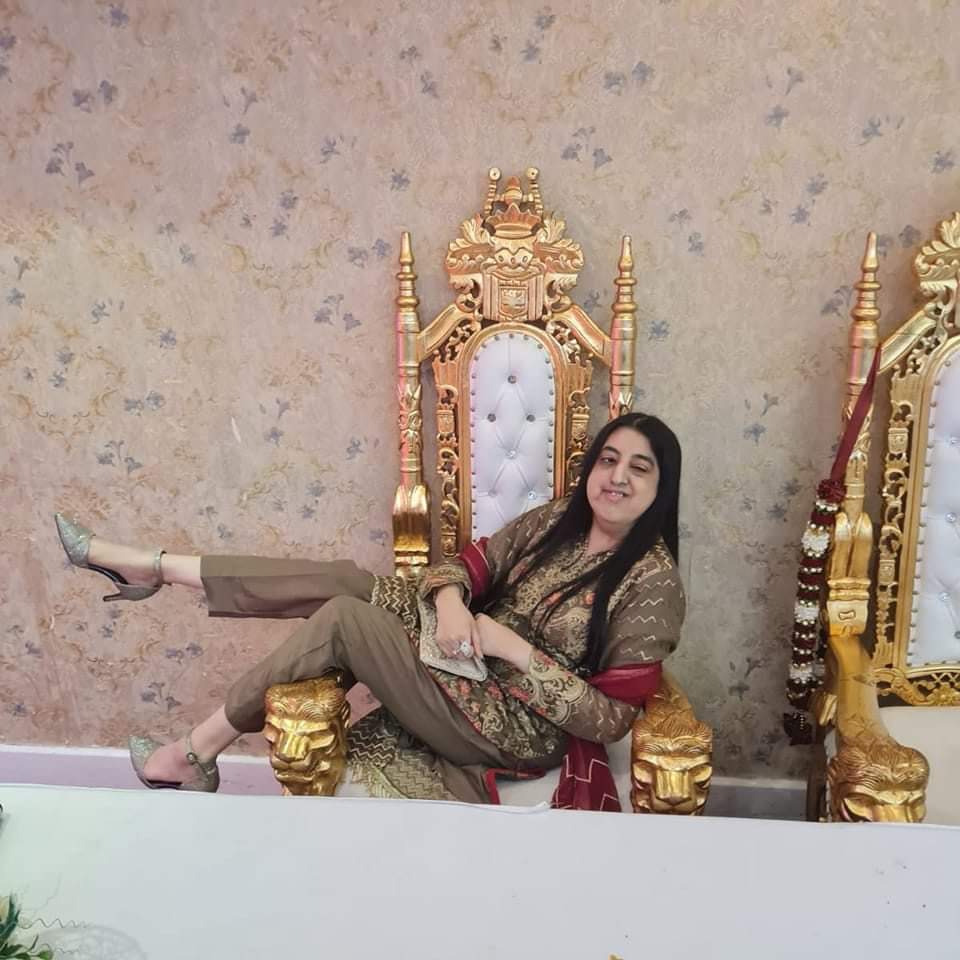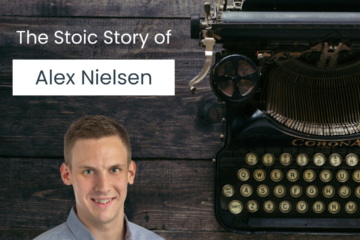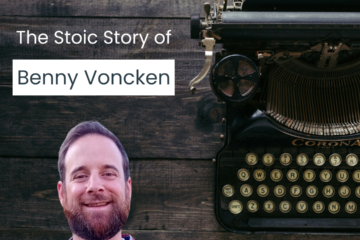
My name is Raafia Ahmed and this is my Stoic Story. I am 30 years old, and I live in the United Kingdom. Keep reading to find out more about how stoicism changed my life for the better.
If you want to learn more about Raafia and follow her, check out her page on X (Twitter) or Instagram
Although I started Stoicism in 2022, I still feel like a novice at this practice. During these two years, I can already see a change in my attitude towards certain situations in my life. All I know is that I wish someone had introduced me to this practice in my early 20s. Then, I would not have faced the problems I did eight or nine years ago.
What started your Stoic journey?
Back in my early 20s, I was going through a lot with my health, and it was taking a toll on me physically and mentally. As a result of that, I went to a dark place and started to have dark and intrusive thoughts. I also had bouts of imposter syndrome (which I still have today) and used to do SH as well and would cover the marks with long-sleeved shirts. It was not a good time mentally and I was at a crossroads.
I tried counseling from a professional which was helping a little bit, but I did not want to ramble on to a stranger for one hour and pay her to listen to my problems. A lot of people say the lockdown ruined their lives and ruined their livelihoods. But for me, lockdown was the best thing that ever happened.
Do you want to share your Stoic Story, go here.
In 2020 (before the lockdown), I was in the library and found a book on cognitive behavioural therapy and mindfulness and I started reading that during the lockdown. Then, I thought ‘Let us practice mindfulness. What is the worst that can happen?’
Mediation made a big impact

I did a 15-minute meditation in the morning every day for seven days and that helped me some. Then I set a challenge of 14-day morning meditation for 15 minutes. I added another seven days and another seven days. As a result, I ended up doing thirty days of morning meditation and writing down how I felt after the thirty days.
I wrote down what I was feeling before I started the meditations, and I wrote down how I felt afterward. I compared the two entries and there was a notable change in tone and the way I was writing after the experience. Although I did not know it, that was my first step into Stoicism, and it would change my life forever.
Why Stoicism?
I wish I could pinpoint which specific moment got me into Stoicism but there are so many. I decided that I no longer wanted to harbor any negative emotions and wanted to let go of any negativity that I was feeling but I did not know how to do it, and I had no one to ask advice. It was time to investigate practices and came across Stoicism. But at first, I ignored it. I used to think, and I quote
“Stoicism is no emotions. It is a brick wall. Why bother?”
Back in 2022, I was on X (formerly Twitter) and a friend had sent me a link to a BeeStoic space. I had it on in the background just as noise and I was not paying attention to it. But then I went back and listened to the recording and made some notes. One name that was spoken a lot was Marcus Aurelius and I had no idea who he was. I thought he was still alive (make fun of me here). I went on YouTube and watched a video on Marcus Aurelius and his life.
That was when it first started because I wanted to know more about this practice. I decided I wanted to work on myself and change my life for the better. Then I would go into the spaces more until one day, I plucked up the courage to request the microphone and speak. That really boosted my confidence to go into the spaces on X and speak more and give a little more about myself every time.
Speaking about Stoicism
Benny, Brendan, and Brice were so good, and they would give me confidence in speaking and sharing my story and giving my input as well. But there was still more that I did not know about Stoicism. You see, speaking on a space on X is fine but if you do not have the knowledge, then what is the point?
I then started reading more into Stoicism and slowly I have started implementing these practices in my life and it has helped me a great deal.
What does Stoicism mean to you?

Stoicism means a lot to me now because I can take a situation and look at it from a stoic’s point of view. I can reflect on past situations and think about what I could have done differently. Reading books and speaking in spaces is fine but it is useless if you are not willing to implement the practices. There are times I am stuck, and I would ask people what to do and they would give me their solution. Then I would ask myself WWASD? Which translates as ‘What would a Stoic do?’ I don’t do that for every situation because otherwise, I would be there all night. I do it for certain situations where I overreacted or did things badly.
To me, Stoicism is all about the perspective it gives you on a situation. It is up to you which perspective you want to take. Stoicism also embodies the idea of keeping inner peace and resilience in the face of life’s challenges. It emphasizes the importance of focusing on what we can control while accepting what we cannot. This philosophy encourages rational thinking, self-discipline, and the pursuit of virtue, fostering a mindset that helps navigate adversity with grace and clarity.
How has Stoicism impacted your daily life?
Stoicism can profoundly change daily life by fostering a sense of calm and perspective. It encourages me to approach challenges with a focus on rational responses rather than emotional reactions. This mindset helps prioritize what truly matters, promotes resilience in tricky situations, and cultivates gratitude for the present moment. Overall, it leads to more thoughtful decision-making and a greater sense of inner peace.
There have been a couple of incidents recently where I have used stoicism, and it has helped me. For example, on the 13th of October, I leaped and decided to remove my Snapchat. It was something that I was thinking about for a while. I did it because I realized what was more important in life and social media is not that important to me anymore. Deleting the app was a big step that I had taken but from doing that, I feel happier and lighter. I had finally stopped obsessing about what other people were doing as it was affecting me negatively.
Another example is personal loss. Last year, I lost two uncles within the space of six weeks. That took a toll on me personally and I was lost for a long time. I had retreated to the girl I was when I was 22 and I did not know what to do. But embracing the Stoic idea of accepting fate (Amor Fati) allowed me to find meaning in the experience rather than resisting it. This perspective helped me navigate grief with a sense of acceptance and that everything is temporary in this world.
What Stoic practice or teaching resonates with you the most?
“The things you think about determine the quality of your mind. Your soul takes on the color of your thoughts.”
Marcus Aurelius, Meditations, Book 5.16
“Your ability to control your thoughts – treat it with respect. It’s all that protects your mind from false perceptions – false to your nature, and that of all rational beings.”
Marcus Aurelius, Meditations, Book 3.9
One Stoic concept that resonates deeply with me is the idea of the dichotomy of control—the distinction between what we can control and what we cannot. This principle is encapsulated in Epictetus’s teaching that we should focus only on our thoughts, actions, and responses while accepting external circumstances as beyond our influence.

A specific exercise that has significantly influenced me is negative visualization. By imagining potential challenges or losses, I cultivate gratitude for what I have and prepare myself emotionally for difficulties. This practice helps me keep perspective and resilience, enabling me to approach life’s uncertainties with greater equanimity. Overall, these teachings have profoundly shaped my mindset and approach to everyday challenges.
Do you have any advice for others who are new to Stoicism?
For those new to Stoicism, here are some insights and tips to help you start your journey. Do your research first and make sure you know all that you need to know about Stoicism before delving into the practices. Then you should familiarise yourself with key Stoic texts, such as Marcus Aurelius’s Meditations, Seneca’s letters, or Epictetus’s Enchiridion.
These works offer foundational insights and practical wisdom. It is important to know that your problems will not get sorted out overnight. If you practice this every day, you will soon pick things up and it will become second nature eventually. The final tip I would give is to focus on what you can control. Understand the distinction between what you can change and what you cannot. Direct your energy toward your thoughts and actions, rather than external circumstances.
Are you going through difficult times and you think Stoicism can help you? Get in touch with our Stoic coaches and book your Free Consultation.
Read more Stoic Stories and learn how to share yours here.


0 Comments